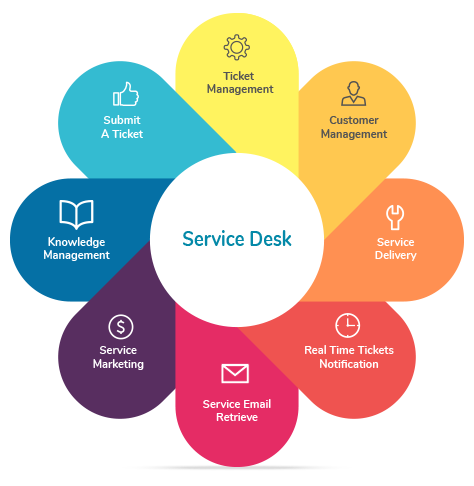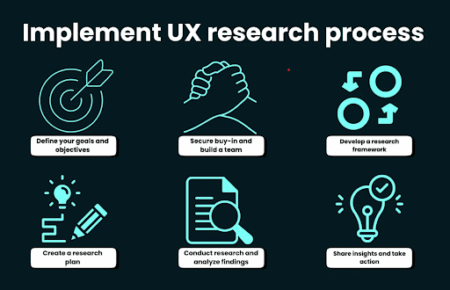An IT service desk is a communication system that provides a single point of contact or SPOC between your IT organization and your end users. As a fundamental element of IT Service Management or ITSM, the Service Desk handles the entire IT service delivery lifecycle, from managing service requests to resolving service issues and organizing service upgrades.
An IT service desk is defined by the IT Infrastructure Library or ITIL and is a superset of the standard help desk. IT help desks are focused on troubleshooting problems, while service desks are more generally focused on providing service to users. The help desk is therefore used for tactical IT support, while the service desk is more strategic in nature. The service desk also handles software licenses, service providers, third-party agreements related to IT service management, and more.
The Importance of a Service Desk
Your service desk is the “face” of your IT operations to your employees, customers, business partners, and suppliers. They provide a central resource for getting assistance not only with IT incidents, but also with IT service requests such as password resets and database access requests.
The IT service desk is a key part of ITSM or IT service management, a best practice framework for managing IT as a service. Service desks are also responsible for multiple ITSM activities such as service request management, incident management, self-service portals, knowledge management, performance reporting, and Service level agreement or SLA management. Some service desk tools also include problem and change management capabilities.
Why Use an IT Service Desk?
IT service desks are playing a key role in the increase of remote work and digital transformation. Remote workers have a growing need for reliable technology and real-time collaboration. Organizations that adopt self-service are more successful, have increased service desk capacity, and achieve an average self-service rate of 20%.
The main benefits of Service Desk are:
Operational efficiency: A service desk standardizes IT processes and automates recurring tasks wherever possible to accelerate incident response and make operations more cost-effective. Deploying virtual agents and AI chatbots within service desks can reduce response times from 10 minutes to just seconds.
Better alignment between business and IT: A service desk is the connection between people, business processes, and the IT services they enable. This provides significant insight into user satisfaction. This enables proactive problem management as well as a more enhanced planning for future IT services.
Increased productivity: Self-service tools, a shared knowledge base, and automated workflows streamline IT service delivery. This allows users to get back to work faster. In addition, it enables IT staff to focus on more strategic activities. Service desk software can reduce customer ticket volume by up to 80%.
Improved IT asset management: A service desk serves as the location for all your hardware and software assets and contracts, facilitating information retrieval, asset assessment, configuration, maintenance, and many more crucial operations.
Greater Reliability: By accelerating incident resolution, reducing incidents and problems, and even avoiding or resolving problems automatically, service desks keep business operations running at a lower cost. One of the largest health insurance providers used conversational AI to reduce costly pre-service calls.
Key Capabilities of Service Desks
Enterprises use IT service desks for multiple functions, including:
IT Incident Monitoring: Prevent unplanned outages and service interruptions and remediate them with minimal impact to users and business.
Fix issues and facilitate resolution of known issues.
Manage change to reduce IT service disruptions, compliance issues, as well as other risks to critical operations.
Handle service requests from individual users and business units. These can range from employee requests for new devices and partner requests for portal access, to function-centric requests for new software licenses.
Provide a service catalog and “self-service” tools to enable users to resolve issues quickly and individually.
Extend departmental knowledge and share that information with others through a searchable knowledge base.
Track the efficiency of your IT team and service desk tools with specific metrics and detailed reports.
Modern software for service desks uses AI automation to assign, prioritize, and manage tickets to ensure fast resolution. Virtual Agent can manage various issue escalations with automatic routing to the right support team, while streamlining IT operations and user experience.
Service desks have evolved to meet companies’ needs that were traditionally unrelated to IT, such as: Human Resources, Legal, and Finance or Accounting Operations. Some service desks can manage employee onboarding, supplier and partner agreements, data access management, and more.
The Future of Service Desks
With new technologies emerging daily, IT service desks must adapt their processes on a regular basis to their users’ needs. However, keeping workforce members productive and satisfied is a considerable challenge. According to a Forrester survey, only 17% of information workers worldwide said it was a simple process to get approval to access the data they needed.
In response, IT service desks are developing new services to improve the digital experience. New communication channels like chat and chatbots make it easier to reach your service desk. Other tools such as the Services app store, for example, allow users to request apps, services, devices, and support, even at remote work.
The scope of services is also evolving towards enterprise service management with formal processes to support human resources, security, facilities, finance, and legal departments. IT teams know how to organize non-IT tasks to improve business outcomes.
Service automation not only accelerates incident resolution, it also improves employee and customer satisfaction. Users don’t have to wait for simple requests like accessing a new database. Inquiries that require more in-depth IT knowledge can also be processed faster thanks to automatic incident classification and an intelligent ticketing system.
Indeed, it is a requirement for modern businesses to have an efficient and seamless service desk. Service desks facilitates operations, accelerate workflows, and increase employee and user satisfaction. As a result, it is necessary for businesses to acquire an efficient and convenient service desk. DigitalCook Qatar offers businesses of all sizes and natures an effective service desk with advanced tools and streamlined operations







